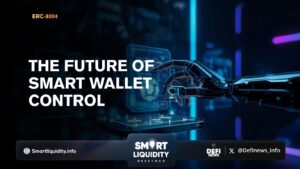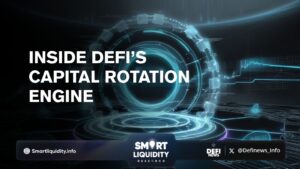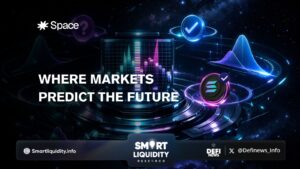Technologies Behind Decentralized Aggregators


Technologies Behind Decentralized Aggregators, an exploration of DEX aggregation. In the realm of information dissemination, decentralized aggregators have emerged as transformative platforms. Centralized aggregators, plagued by issues like data privacy and single-point vulnerabilities, are being outpaced by their decentralized counterparts. But what powers these decentralized marvels?
Let’s delve into the technologies driving their success.
Blockchain
At the core of decentralized aggregators lies blockchain technology. Utilizing decentralized ledgers, blockchain ensures data immutability and transparency. Each block contains a cryptographic hash of the previous block, creating an unbreakable chain. This decentralized structure eliminates the need for intermediaries, fostering trust in data integrity.
Smart Contracts
Smart contracts, executed automatically when predetermined conditions are met, play a pivotal role in decentralized aggregators. Built atop blockchain platforms like Ethereum, these self-executing contracts enable transparent and trustless transactions. In the context of aggregators, smart contracts govern data access, distribution, and rewards, ensuring fair and efficient operations.
Decentralized Storage
Traditional aggregators often rely on centralized servers, vulnerable to data breaches and downtime. Decentralized aggregators leverage distributed storage solutions like IPFS (InterPlanetary File System) or Swarm. By storing data across a network of nodes, these platforms enhance security and resilience, mitigating the risk of data loss or manipulation.
Distributed Ledger Technology (DLT)
Beyond blockchain, decentralized aggregators harness various forms of distributed ledger technology. Directed Acyclic Graphs (DAGs), for instance, offer scalability and transaction throughput advantages over traditional blockchains. Tangle, employed by projects like IOTA, exemplifies the potential of DAG-based DLTs in powering decentralized data aggregation.
Oracles
In decentralized ecosystems, accessing real-world data poses a challenge. Oracles bridge the gap between on-chain and off-chain data sources, providing smart contracts with external information. Decentralized aggregators rely on oracles to fetch data from diverse sources, ensuring the accuracy and relevance of aggregated information.
Consensus Mechanisms
Consensus mechanisms, governing how network participants agree on the validity of transactions, are fundamental to decentralized aggregators’ operation. Proof of Work (PoW), Proof of Stake (PoS), and other consensus algorithms dictate how nodes reach consensus without relying on central authorities. These mechanisms underpin the security and integrity of decentralized networks.
Interoperability Protocols
Decentralized aggregators often interact with various blockchain networks and protocols. Interoperability solutions like Polkadot and Cosmos facilitate seamless communication and asset transfer between disparate blockchains. By enabling cross-chain interoperability, these protocols enhance the versatility and utility of decentralized aggregators.
Here are some examples of decentralized aggregators across different industries and applications:
Ocean Protocol
Ocean Protocol is a decentralized data exchange protocol that allows individuals and organizations to publish, exchange, and monetize data assets securely and transparently. It facilitates the aggregation and sharing of diverse datasets while ensuring data privacy and integrity through blockchain technology.
Uniswap
Uniswap is a decentralized exchange (DEX) built on the Ethereum blockchain. It aggregates liquidity from various liquidity providers and enables users to swap ERC-20 tokens without the need for intermediaries. Uniswap employs an automated market-making (AMM) mechanism, allowing for decentralized and permissionless token trading.
Chainlink
Chainlink is a decentralized oracle network that connects smart contracts with real-world data. It aggregates data from multiple off-chain sources, including APIs, websites, and IoT devices, and delivers it securely to smart contracts on various blockchain platforms. Chainlink ensures the reliability and accuracy of data inputs for decentralized applications (dApps).
Aragon
Aragon is a decentralized autonomous organization (DAO) platform that enables the creation and management of decentralized organizations on the Ethereum blockchain. It aggregates governance tools, voting mechanisms, and financial management features to empower communities and businesses to govern themselves transparently and autonomously.
Balancer
Balancer is a decentralized asset management platform and automated portfolio manager built on Ethereum. It aggregates liquidity from multiple token pools and allows users to create custom asset allocations based on their investment preferences. Balancer employs an automated rebalancing mechanism to maintain desired portfolio weights, providing decentralized and non-custodial asset management services.
In conclusion, the technologies underpinning decentralized aggregators are diverse and sophisticated, leveraging blockchain, smart contracts, decentralized storage, and other innovative solutions. By harnessing these technologies, decentralized aggregators offer a paradigm shift in data aggregation, fostering transparency, security, and trust in information dissemination. As the decentralized ecosystem continues to evolve, these technologies will play a pivotal role in shaping the future of aggregation platforms.
What is Decentralized Aggregator?
A decentralized aggregator, often referred to as a decentralized data aggregator or decentralized information aggregator, is a platform or protocol that collects and organizes data from various sources in a decentralized manner, meaning there is no single central authority controlling the aggregation process.




